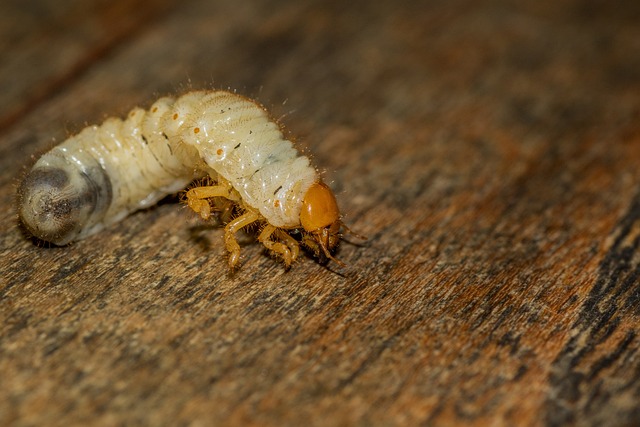Understanding pest behaviors guides effective control methods: rodents seek hidden food & shelter, ants follow pheromone trails, and cockroaches favor warm, moist areas. Professionals use tailored strategies—sealing entry points for ants, eliminating water/food sources for cockroaches, & using baits/traps for rodents—to minimize environmental impact while eradicating infestations. For ant control, natural repellents like peppermint oil and strategic baiting are preferred over toxic chemicals. Preventive measures like regular cleaning and inspections enhance long-term protection against persistent ant infestations, with professional services offering rapid, sustainable solutions.
Looking to conquer persistent rodent, ant, or cockroach problems? This comprehensive guide unravels specialized treatments tailored to these pests’ unique behaviors. We explore effective targeted strategies, from understanding species-specific habits to utilizing advanced products and safe, humane methods. Discover long-lasting solutions through preventive measures and ongoing management techniques. Embrace a pest-free environment with our expert insights on ant infestation treatment and more.
Understanding Rodent, Ant, and Cockroach Behavior for Effective Targeted Treatments
Understanding the behavior of rodents, ants, and cockroaches is key to implementing effective targeted treatments for infestations. These pests have distinct habits and preferences that can guide the best strategies for their control. Rodents, for instance, are often drawn to sources of food and shelter, seeking out hidden spaces in walls or under floors. They are nocturnal creatures, making them more active during the night. Ants, on the other hand, follow pheromone trails left by their colony members to find food, and they prefer sugary substances and protein-rich items. Cockroaches are adaptable and fast, capable of hiding in tiny cracks and crevices. They are attracted to warmth, moisture, and food sources, often infesting kitchens and bathrooms.
By studying these behaviors, pest control specialists can develop tailored treatments. For an ant infestation treatment, for example, sealing entry points and disrupting pheromone trails can be effective. Targeting cockroaches involves a combination of eliminating water sources, securing food items, and using targeted pesticides in hidden areas. Rodent control may require setting up traps or baits strategically placed in their preferred habitats to disrupt their food search behaviors.
Specialized Products and Tools for Infestation Control
When dealing with rodent, ant, or cockroach infestations, professionals rely on specialized products and tools designed for effective control. For ant infestations, this often includes advanced baiting systems that use attractive substances to draw out and eliminate ants at their source. These baits are carefully formulated to target specific ant species while minimizing environmental impact. Additionally, professional-grade insecticides and repellents offer stronger, more targeted solutions than over-the-counter products.
Rodent control specialists utilize a range of tools, from sophisticated traps designed for precise capture to weatherproof enclosures for preventing re-entry. Cockroach treatments involve specialized gel baits that disrupt the insects’ nervous systems, as well as powerful yet safe insect growth regulators (IGRs) that inhibit their ability to reproduce. These tailored approaches ensure effective management of infestations while adhering to safety standards and environmental considerations.
Safe and Humane Methods for Eradicating Pests Without Harming Your Environment
When dealing with pest infestations, especially in homes or commercial spaces, it’s crucial to employ safe and humane methods that don’t compromise your environment. Traditional pest control often relies on toxic chemicals, but these can be harmful to both humans and pets, and they contribute to environmental pollution. For ant infestation treatment, for instance, there are eco-friendly alternatives that are just as effective.
One such method is the use of natural repellents like essential oils, which ants find unpleasant. Peppermint, lemon, and cloves oil are popular choices. These can be applied directly or diffused in affected areas to deter ants without causing them harm. Another humane approach involves introducing natural predators like certain species of insects or birds that feed on ants. This biological control method not only helps eradicate the ant infestation but also promotes a balanced ecosystem within your surroundings.
Preventive Measures and Ongoing Management Strategies for Long-Lasting Results
Preventive measures are key to maintaining a pest-free environment, especially for persistent issues like ant infestations. Regular cleaning and sanitizing routines are essential, focusing on eliminating food sources and hiding places. Sealing entry points and cracks can prevent pests from accessing buildings, while proper waste management ensures no organic matter attracts ants or other rodents. Using baits and traps strategically can also help monitor and control populations effectively without causing harm to the environment or non-target species.
For ongoing management, a multi-faceted approach is ideal. This includes regular inspections to identify any new signs of infestation early on. Combining chemical treatments with natural repellents can offer long-lasting results. Professional services specializing in ant infestation treatment provide tailored solutions, ensuring rapid and effective eradication while implementing sustainable practices for continuous protection against future invasions.
In addressing ant infestation treatment, understanding the unique behaviors of rodents, ants, and cockroaches is key. Specialized products and tools, combined with safe and humane methods, offer effective solutions without harming the environment. Preventive measures and ongoing management strategies further ensure long-lasting results, allowing you to maintain a pest-free living or working space. By integrating these targeted treatments, you can effectively navigate ant infestations and preserve a harmonious ecosystem.
